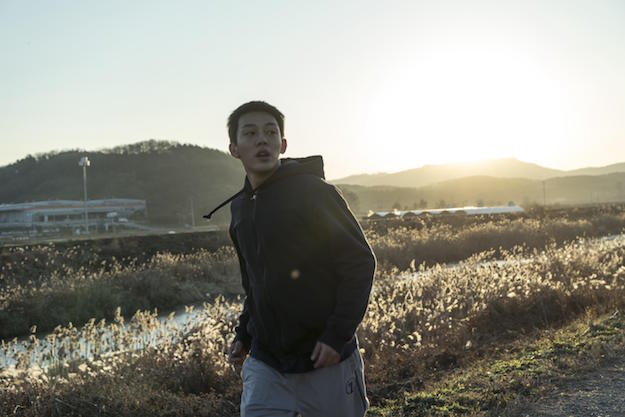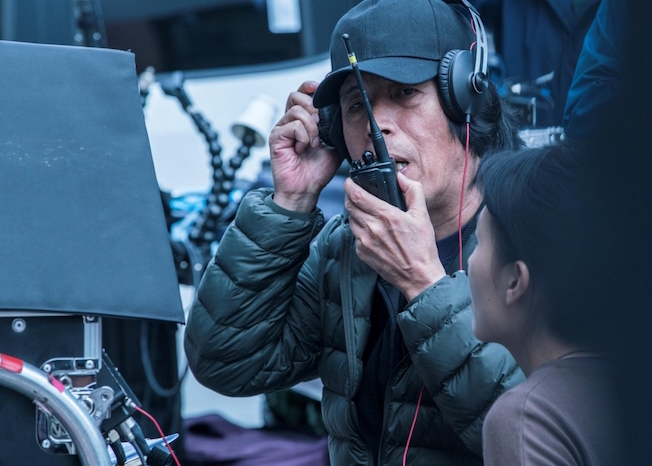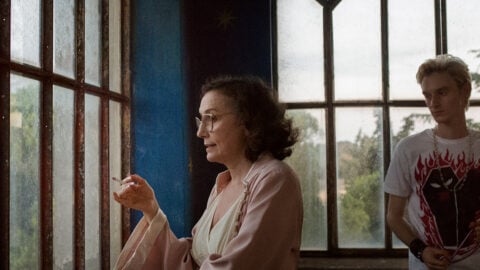Interview: Lee Chang-dong
In what is by now a Cannes tradition, the most widely admired entry in Competition—Lee Chang-dong’s Burning—left without a single prize from the main jury, though the film did win the International Critics’ Prize and set a record-high score in Screen Daily’s critics poll. Expanded from Haruki Murakami’s short story “Barn Burning,” Lee’s sixth feature, and his first in eight years, begins by tracing a romantic triangle of sorts: Jongsu (Yoo Ah-in), an aspiring writer, becomes involved with a woman he knew from childhood, Haemi (Jun Jong-seo), who is about to embark on a trip to Africa. She returns some weeks later with a fellow Korean, the Gatsby-esque Ben (Steven Yeun), who has a mysterious source of income and a very unusual hobby….
If Lee’s best-known films—Poetry (2010), Secret Sunshine (2007), Oasis (2002)—have tested the possibilities of melodramatic form, Burning finds this former novelist bending the contours of the thriller. A tense, haunting multiple-character study, the film accumulates a series of unanswered questions and unspoken motivations to conjure a totalizing mood of uncertainty. Speaking through a translator as the festival drew to a close last week, Lee answered a few questions about the film’s inspirations and themes. [Burning opens October 26.]

After seeing the film, I read the Murakami story, which is fairly enigmatic and quite short. Can you take me back to your first encounter with this story?
It’s quite a minimal story. When I read it, I thought its mysteries had something in common with projects I had been thinking about for a long time. After my last film, Poetry, I completed three scripts though I didn’t have the conviction to make any of them. But what these projects had in common was the theme of anger—the anger and helplessness of young people today, and their sense that there is something wrong with the world that they don’t quite realize or understand.
I’ve heard you say that you always ask yourself before you start a film, “What is cinema for?”
As a filmmaker, that’s the most important question. In the film, Jongsu is trying to be a writer and always asking himself, “What kind of story can I write?” Like Jongsu, I ask myself that all the time, as if I’m a filmmaker who’s just starting his career. It came to my mind that anger is one of the most important issues in our world today, especially for young people.
The Murakami story, “Barn Burning,” shares its title with one by Faulkner, which you seem to draw on as well, notably in the relationship of the protagonist with his father.
They’re very different stories, and their styles are very different. But I was interested in the way of life in Faulkner’s world, and his story also deals with anger, and so I tried to find some connections between the two stories.

The film is largely set near the border town of Paju—we even hear the North Korean propaganda broadcasts in one scene. Why did you choose this location?
Paju has the kind of typical countryside in Korea that is disappearing more and more now. It’s related to the past, and also related to the character of Jongsu’s father [a farmer]. But it says something about a contemporary mindset too: the conflict between the South and the North is always in the subconscious for Koreans.
It’s a film that leaves many questions unanswered. How did this pervasive ambiguity affect your work with the actors in terms of interpreting their characters?
I’m not used to giving too specific direction when I work with actors, but I think in this movie, I gave them more freedom. Especially with the character of Ben, the most important thing was trying to understand who he is and his internal motivations. The ambiguity of the character is key, and that was the most difficult aspect for the actor and for me.
Could you talk about the long, pivotal sequence that takes place at dusk, in which Hae-mi performs what she calls “the dance of the Great Hunger” and a crucial revelation takes place between the two male characters?
It is probably the central image in this movie, which is a story about two men and the woman between them. I chose to set it at dusk, between day and night. That as well as the location just on the border reflects the mystery of this movie, the uncertain line between truth and lies, the real and the false. It is hard to explain in words, but for me, this is the most important scene in the film.
Dennis Lim is the director of programming at the Film Society of Lincoln Center.





